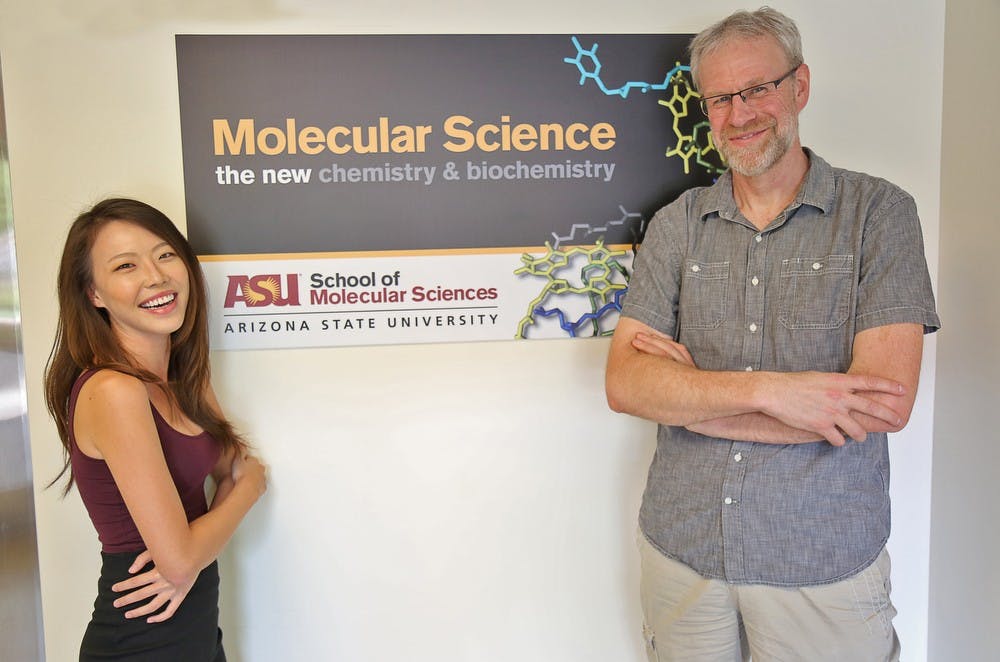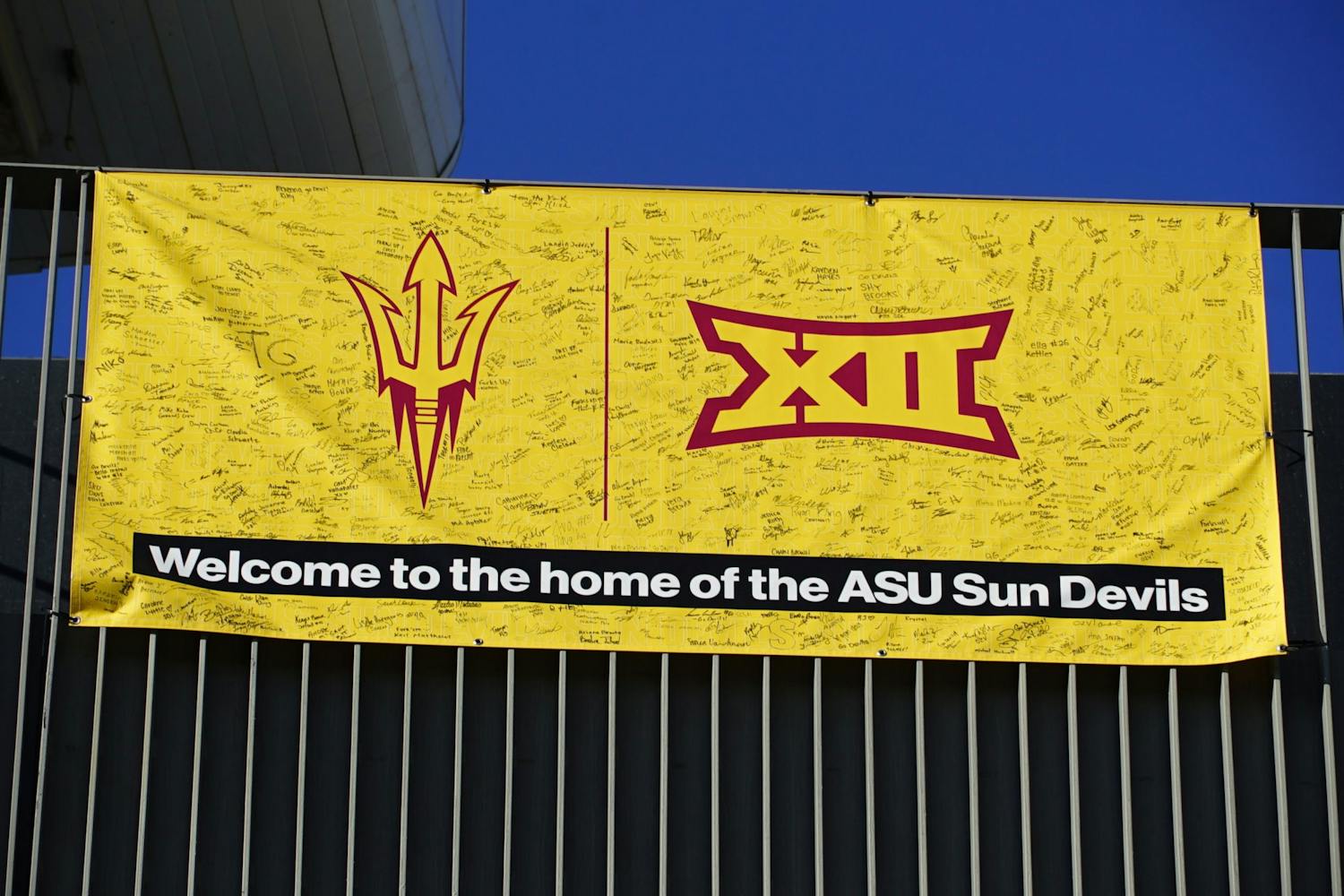The department of chemistry and biochemistry of yore might have investigated what chemicals are and how they react with each other. Now, ASU's School of Molecular Sciences renamed itself to reflect the world's demand for solving societal problems.
The school, formerly the Department of Chemistry and Biochemistry, is the first of its kind among universities in the U.S.
Ian Gould, President's Professor and Associate Director of Outreach for the School of Molecular Sciences, said this new name will lead to more degree programs for students in the next two years and hopefully partnerships with industries as well.
He said the degree programs will better match the kinds of problems that graduates of the program will work on in the future.
“Our disciplines have matured to a point where we really should and can be working on problems which are relevant to society,” Gould said. “We’re not really trying to figure out how chemicals work anymore. We have a pretty good understanding of how they work and our job really should be to see how can we use (our knowledge) to solve big problems.”
The name changed at the start of the fall semester when faculty members agreed it more accurately reflected the types of research they do and the skills students gain from their programs. He said ASU has a strong history with interdisciplinary research and the faculty wanted to solidify that reputation.
“Chemistry and biochemistry are changing very rapidly so the people in our department who are doing research in this area don’t really do old fashioned chemistry and biochemistry anymore,” Gould said. “It’s a way of showing that we’re doing things a little bit differently and with a little more forward thinking. … It shows that we’re not standing still.”
One of the research projects the school is working on now involves measuring the molecular basis for disease using X-ray lasers. Gould said this project has been going for three or four years and is in collaboration with the physics department.
According to the School of Molecular Sciences website, research activities will refocus around important societal themes, like energy and sustainability and medicine and health.
Molecular sciences professor Neal Woodbury said ASU has been restructuring its thinking about how to organize both academic and research units on campus. He said ASU President Michael Crow is interested in seeing more integration and cross thinking between groups.
“A chemistry student might be sitting at a bench next to an electrical engineer or next to a biologist and therefore seeing and learning how those things interface with each other,” Woodbury said. “That’s really what the outside world and the industry wants to see now. ASU has really been in the forefront of making those kinds of opportunities available for students.”
Woodbury explained that the faculty has evolved its curriculum over time to better match modern scientific issues. The new name was a natural change to represent that shift, he said. Woodbury explained that students will better understand how their fields relate to others like engineering or medicine.
“It’s based less on one particular discipline and more on sort of a conceptual level that includes lots of things,” he said. “We are evolving in the direction of making what we do more relevant to where jobs and science are today.”
Tech support analyst Mary Zhu also works for the School of Molecular Sciences. She said she’s looking forward to the changes the new name will bring.
“I think this is a really exciting thing,” Zhu said. “It changes how we look at things, even the look of our website. Everything is going to change.”
Related Links:
Chemistry Labs: Experiment gone wrong?
ASU scientists develop carbon capture technology
Reach the reporter at bridget.dowd@asu.edu or follow @bridgetbernice on Twitter.
Like The State Press on Facebook and follow @statepress on Twitter.




